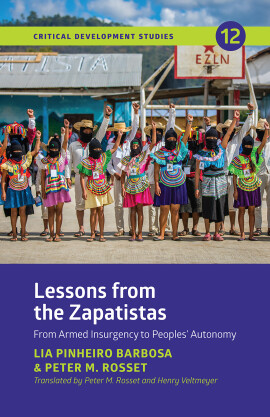
Gender and Resilience in the City
Infrastructures, aspirations, and slow violence in Nepal
Gender and Resilience in the City is an exploration of one urbanizing city: Bharatpur Nepal, from 2014 to 2019. Bharatpur is representative of countless dynamic cities around the world. Local authorities and residents are learning what it means to be in a city in which the rural and urban are morphing into a new space of living. People’s historical practices are blending with opportunities for new futures, including those offered by international development projects.
Attending to gender (not only women) in policy efforts - and in academically overlooked, small urbanizing cities - is critical to our understanding of global urbanisms and development. The book explores two gendered groups that function on a neighbourhood level: mothers' groups and neighbourhood groups. Mothers’ groups provide invisible community resilience in the form of social infrastructures. They experience slow violence by patriarchal power structures that will not allow them to be more than resilient. Meanwhile, by participating in neighbourhood groups, certain men (particularly high caste and affluent ones) are allowed to rework the urban and fulfil their aspirations for physical infrastructure in the form of paved roads in a new state-grey space controlled by the local authority.
This book presents the experiences of mothers’ groups, neighbourhood groups, governmental officials, and international development projects. It considers who has power, who is kept invisible to whom, and who can create the city in their imagery. New forms of ‘we’ness are being created. The insights in this accessible book will inspire researchers, students, practitioners, and policy makers working with urban community resilience.
Published: 2023
Pages: 148
eBook: 9781788532136
Paperback: 9781788532129
Hardback: 9781788532112
Attending to gender (not only women) in policy efforts - and in academically overlooked, small urbanizing cities - is critical to our understanding of global urbanisms and development. The book explores two gendered groups that function on a neighbourhood level: mothers' groups and neighbourhood groups. Mothers’ groups provide invisible community resilience in the form of social infrastructures. They experience slow violence by patriarchal power structures that will not allow them to be more than resilient. Meanwhile, by participating in neighbourhood groups, certain men (particularly high caste and affluent ones) are allowed to rework the urban and fulfil their aspirations for physical infrastructure in the form of paved roads in a new state-grey space controlled by the local authority.
This book presents the experiences of mothers’ groups, neighbourhood groups, governmental officials, and international development projects. It considers who has power, who is kept invisible to whom, and who can create the city in their imagery. New forms of ‘we’ness are being created. The insights in this accessible book will inspire researchers, students, practitioners, and policy makers working with urban community resilience.
| Preface | |||
|---|---|---|---|
| Acknowledgements | |||
| List of figures and tables | |||
| Abbreviations | |||
| Introduction | |||
| Chapter 1: The overlooked city, power and aspirations | |||
| Chapter 2: Nepal and Bharatpur | |||
| Chapter 3: Gendered community resilience and slow violence | |||
| Chapter 4: Gendered neighbourhood groups, aspirations and reworking | |||
| Chapter 5: From community resilience to ‘we’nesses | |||
| Chapter 6: Letters | |||
| Conclusion | |||
| Glossary | |||
| References |
‘Hanna Ruszczyk combines her observations as an outsider with the voices of mothers, neighbours, mayors, women and men, living, working, dreaming in places that are often forgotten to bring us a concise but also a comprehensive account that challenges normative understandings of gender, resilience, and infrastructure in the context of urbanisation and development in Nepal - and broader. Her book provides both a call for an urgent feminist inquiry and a good read!’
Ksenia Chmutina, Professor of Disaster Studies; Director of Equity; Diversity and Inclusion, The School of Architecture, Building and Civil Engineering, Loughborough University; Special Envoy to East Asia
'This volume offers a rich understanding of the families that struggle, strive and flourish in Bharatpur, a medium sized city in Nepal. While ostensibly the author has a focus on urbanization processes, the dynamics of urban growth, and experiences of risk and safety, she interweaves this with narratives of everyday lives and the limited agency that women secure and use. The volume is an articulation of the significance of gendered research in which the complexities of knowing and being are centre stage.'
Diana Mitlin, Professor of global urbanism in the Global Development Institute at the University of Manchester; Senior associate, Human Settlements, IIED
Dr Hanna A Ruszczyk is based at Durham University, UK, in the Institute of Hazard, Risk and Resilience and the Department of Geography. Her decade-long employment with the United Nations (International Labour Organization and United Nations Development Programme) focused on livelihoods and local economic development in several countries.
Interdisciplinary perspectives on the intersections of roads, sustainable development, and disaster resilience
Robson, Ellen B.
McGowran, Peter
Ruszczyk, Hanna A.
Malamud, Bruce D.
Simpson, Edward
Densmore, Alexander L.
Denton, Neil
Chapplow, Natasha
Gurung, Phurwa
Hall, Tilly E.
Harries, Rebekah
Jenkins, Jack
KC, Apil
Kotter, Richard
Kumar, Ashutosh
Limbu, Bina
Milledge, David
Porter, Gina
Rosser, Nick
Taylor, Faith E.
Toll, David G.
Winter, Mike G.
Woldearegay, Kifle
International Journal of Disaster Risk Reduction, Vol. 128 (2025), Iss. P.105691
https://doi.org/10.1016/j.ijdrr.2025.105691 [Citations: 0]




